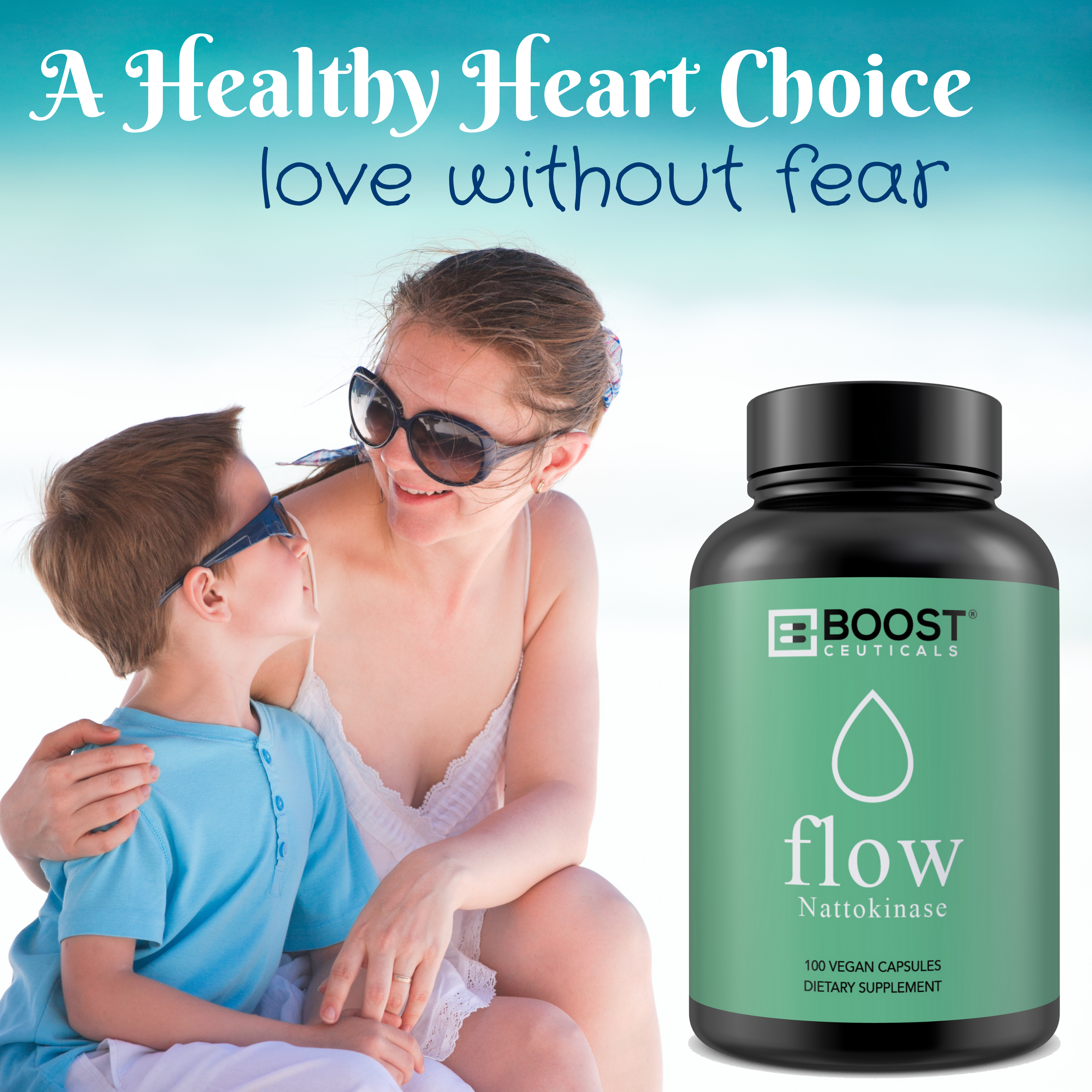10 Surprising Facts About Nattokinase

10 Surprising Facts About Nattokinase
Nattokinase is an enzyme extracted and purified from a traditional fermented soybean-based food from Japan known as Natto. Nattokinase is produced by adding the bacterium Bacillus Subtillis to boiled soybeans. The bacteria try to digest the soybeans by secreting this enzyme. The enzyme can have powerful health benefits, including improving cardiovascular health, thinning of blood and helping fight respiratory issues like chronic rhinosinusitis (CRS).
While few are aware of Nattokinase here in the U.S, Natto has been enjoyed in Japan for ages. With its distinctive pungent smell and gooey consistency, it is not so easy to take, however recent changes and purification has turned this enzyme into an easy to use supplement in capsule form and a measured dose. When purified even further the odor can also be removed with only the benefits remaining.
Here are a few surprising and valuable facts about Nattokinase.
Excellent Protein Source

Natto is a high-protein food. You'll boost your intake of plant-based protein by 34 grams when you consume a full cup.
Packed with Vitamins & Minerals
Natto is packed with micronutrients. A serving of Natto provides 2.7mg of manganese, a whopping 134% of your daily recommended intake. Manganese is important for enzyme function in the body and other functions including blood clotting and metabolism.
You'll also get about 15 grams of iron (84% of your daily needs), 1.2 mg of copper (58% of your daily needs), 201 mg of magnesium (50%), 1,276 mg of potassium (36%), 5.3 mg of zinc (35%), 305 mg of phosphorus (30%), and 15.4 mcg of selenium (22%).
You'll also benefit from the vitamins that Natto supplies. The food is high in vitamin C, providing almost 23 mg or about 38% of your daily needs. Vitamin C helps to boost your body's immune system, build collagen, and improve the absorption of iron from plant-based foods. It is also an antioxidant that can help your body repair the damage from free radicals.
Natto contains 0.3 mg of thiamin (19% of your daily needs), 0.3 mg of riboflavin (20%), vitamin B6, folate, and choline.
Excellent Source of Vitamin K
Natto is often cited as one of the best sources of vitamin K, particularly vitamin K2. Your body uses vitamin K to form bone and prevent blood clotting. The National Institutes of Health recommends that adult women get at least 90 mcg of the vitamin per day and men get at least 120 of vitamin K per day. A one-cup serving supplies over 40 micrograms of vitamin K. Although, Nattokinase supplement is a popular choice with Vitamin K removed. As Nattokinase is used as a natural blood thinner, removing the Vitamin K which is part of the clotting mechanism in the blood helps this.
With medical supervision, Quercetin has been safely used in amounts up to 1,000 mg twice daily for 12 weeks. The most popular dosage remains as 500mg or 1000mg daily.
The appropriate dose for you may depend on factors including your age, gender, and medical history. Speak to your healthcare provider to get personalized advice if you choose to take this supplement and you feel you need to exceed the recommended dose.
Contains ‘Good’ Fat

Natto provides just over 19 grams of fat in a one-cup serving. Most of that fat is polyunsaturated. Polyunsaturated fats help reduce low-density lipoprotein (LDL) cholesterol and can help lower your risk of heart disease and stroke. Natto also provides about four grams of monounsaturated fat—also considered a "good" fat. And there are just under three grams of saturated fat in Natto.
High in Fiber
A form of carbohydrates found in Natto is fiber. You'll get over nine grams when you consume a full cup of the fermented food. The USDA recommends that adults consume 28 grams of fiber per day. Consuming fiber not only improves digestion and regularity, but it also provides many other health benefits, including decreased risk of some types of cancer, obesity, cardiovascular disease, and diabetes.
The remaining carbohydrate in Natto is starch, which is broken down to provide fuel for your brain and muscles.
The glycemic load (GI) of Natto is estimated to be nine when one cup is consumed. Glycemic load takes portion size into account when estimating a food's impact on blood sugar. However, Natto is often consumed with rice—a higher glycemic food. The University of Sydney Australia estimates the glycemic load of a 150-gram serving of white rice and Natto to be 24. Foods with a glycemic load of 20 or higher are considered to be high glycemic foods.
Provides Gastrointestinal Benefits
Natto is fermented with a specific type of bacteria called Bacillus subtilis. Researchers are studying the potential of this and other Bacillus strains to improve gut health in humans. They do know that this bacteria provides probiotic benefits.
Helps with Bone Density

One study published in Osteoporosis International examined the impact of Natto intake on the bone health of elderly Japanese men. After studying over 1,600 men, researchers found that those who consumed more Natto experienced increased bone health as a result of the vitamin K content. However, researchers noted that more studies are needed to understand the association.
Another study examined Natto consumption in older women. For the study, 944 postmenopausal Japanese women were studied over the course of three years.
Improves Cardiovascular Health
Nattokinase is an enzyme produced in Natto during the fermentation process. It acts as a natural blood thinner and assists in the prevention of arterial plaque formation.

Researchers have found that Nattokinase may provide cardiovascular benefits including a reduction in the risk of cardiovascular disease. More specifically the enzyme has demonstrated antihypertensive, anti-atherosclerotic, and lipid-lowering, anti-platelet, and neuroprotective effects, according to several research studies.
Helps with Allergies
The Centers of Disease Control and Prevention has identified eight major food allergies in the United States. Soy is one of them. The others are milk, egg, peanut, tree nuts, wheat, fish, and crustacean shellfish. Those with a soy allergy should avoid Natto.
May Improve Longevity
Because Nattokinase has been linked to substantial reduction in the risk for cardiovascular disease, researchers have also linked it to improved longevity. Cardiovascular disease is the leading cause of death in the world.
According to the authors of a 2018 study, "Natto consumption is believed to be a significant contributor to the longevity of the Japanese population. Recent studies demonstrated that a high Natto intake was associated with decreased risk of total cardiovascular disease mortality and, in particular, a decreased risk of mortality from ischaemic heart diseases.

REFERENCES
- https://www.verywellfit.com/natto-nutrition-facts-and-health-benefits-4781758#toc-health-benefits
- https://en.wikipedia.org/wiki/Nattokinase
- https://www.ncbi.nlm.nih.gov/pmc/articles/PMC5372539/
- https://pubmed.ncbi.nlm.nih.gov/28389065/
- https://www.verywellfit.com/manganese-requirements-and-dietary-sources-2507095
- https://www.verywellfit.com/this-vitamin-could-extend-your-life-research-suggests-5069633
- https://www.verywellfit.com/polyunsaturated-fat-2242014
- https://www.verywellfit.com/monounsaturated-fat-2242011
- https://www.verywellfit.com/insoluble-vs-soluble-fiber-for-weight-loss-3495369
Have any questions or thoughts? Please, feel free to ask away as you share and tag us in your post! BoostCeuticals strive to provide a community who are excited about finding the best boost they need and living the best life possible, both optimally healthy & happy!
Your Participation is the energy behind us helping you in your daily healthy boost!
3 Tips On Best Immune Health and Aging In The Coronavirus Environment
As the number of people infected with the coronavirus keeps increasing daily and millions are locked in their homes, Covid-19 is indeed one of the greatest concerns.
Must Reads
NATURAL HOME REMEDIES FOR ACNE
Jan 1 7 2019
BIOHACKING
Nov 11 2019






